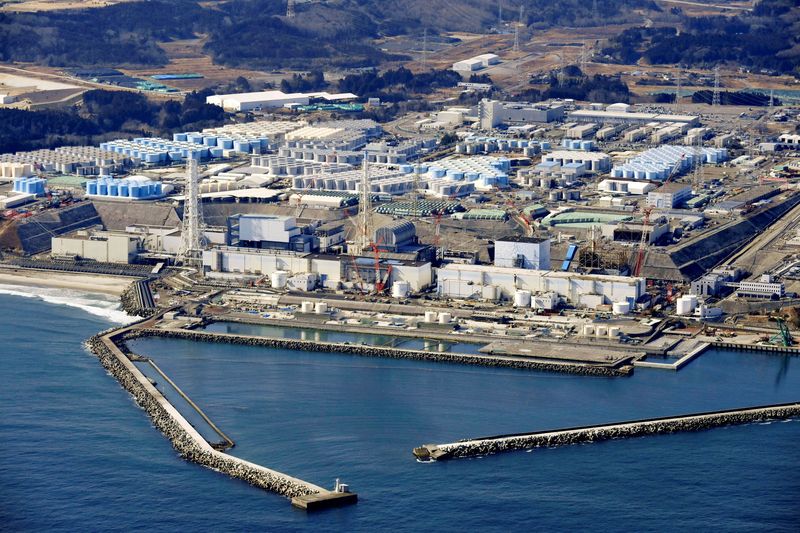By Ju-min Park
SEOUL (Reuters) – The release of waste water from Japan’s wrecked Fukushima nuclear power plant would have a negligible effect on South Korean waters, according to a government study published on Thursday.
“That change would be too small to detect,” an official at the Korea Institute of Ocean Science and Technology said.
The analysis by South Korea government researchers comes against the backdrop of President Yoon Suk-yeol seeking to improve relations with Japan after years of tensions.
The Japanese government said last month that water from the destroyed Fukushima nuclear power plant could be released into sea “around this spring or summer”.
The water release has raised concerns from neighbouring countries, including China and South Korea.
In 2021, South Korea’s then President Moon Jae-in ordered officials to explore petitioning an international court over Japan’s decision to release contaminated water into the sea, amid protests by fisheries and environmental groups.
The simulation study by the Korea Institute of Ocean Science and Technology and the Korea Atomic Energy Research Institute showed the level of tritium, a radioactive isotope of hydrogen, would rise by 0.001 becquerel per cubic meter in ten years, compared to the average of 172 becquerels per cubic meter of tritium currently found in Korean waters. A “becquerel” is a unit of radioactivity.
Japan has said regulators have deemed it safe to release waste water, which will be filtered to remove most isotopes although it will still contain traces of tritium, an isotope of hydrogen hard to separate from water.
Earlier this month, the Pacific island country of Micronesia, one of the fiercest critics of Japan’s decision, said it was no longer concerned about the plan.
The Fukushima Daiichi nuclear station, about 220 km (130 miles) northeast of Tokyo, was badly damaged by a magnitude 9.0 earthquake and tsunami in March 2011, sparking three reactor meltdowns.
More than 1 million tonnes of water used to cool reactors in the aftermath of the disaster, enough to fill about 500 Olympic-sized swimming pools, is being stored in huge tanks at the plant.
(Reporting by Ju-min Park; Editing by Mike Harrison)

